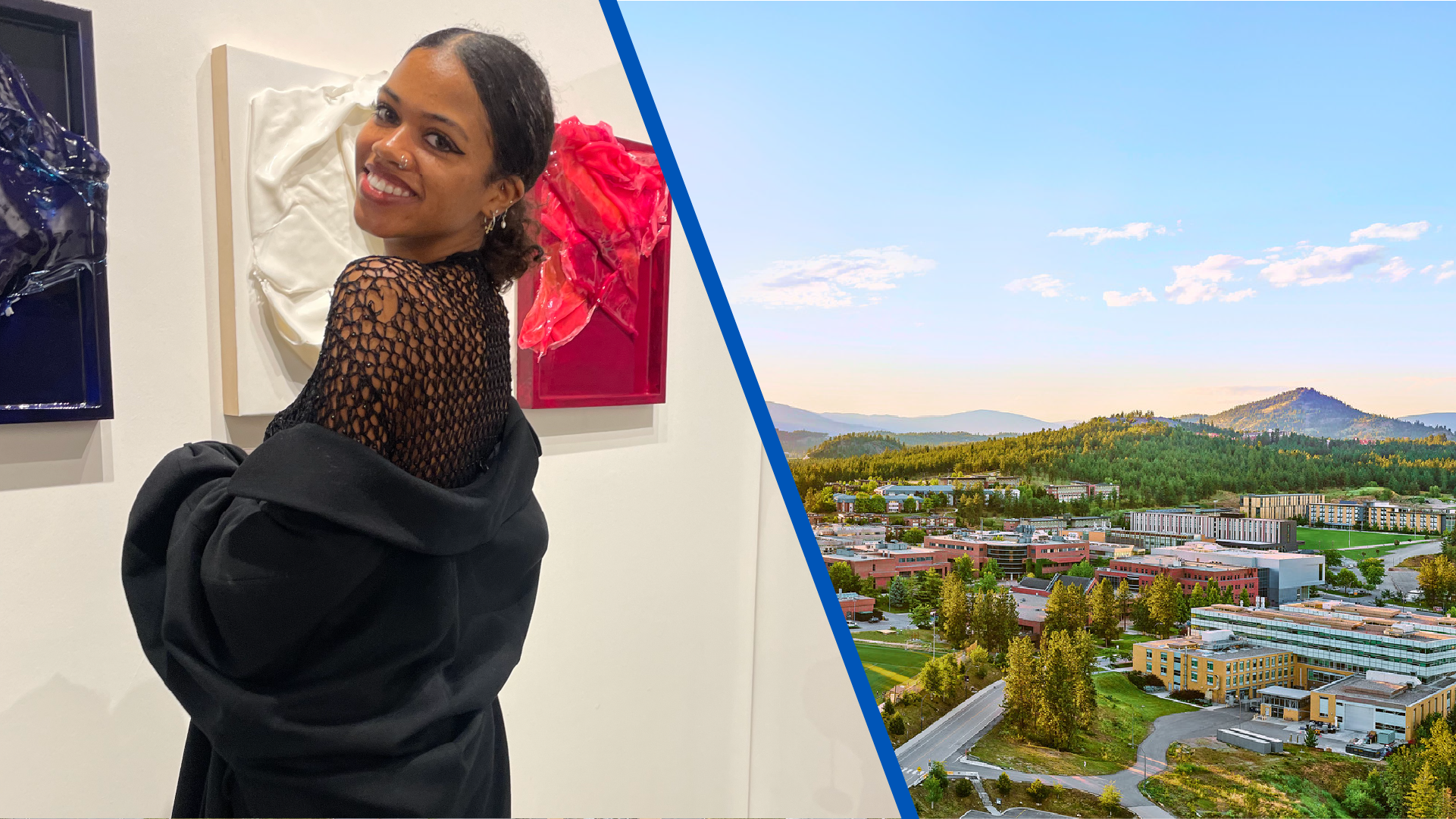
|
Pronouns: She / her UBC affiliation: Undergraduate student Campus: UBC Okanagan Faculty: Arts Department: International Relations Involvement:
|
How have you been involved in advancing equity, diversity and inclusion at UBC?As a Black person at a predominantly white institution, I’ve experienced the challenges of being the only Black person in a room and feeling a lack of belonging and connection. I knew that if I wanted to find community, I would have to create space for Black people on campus. In my positions as the Inclusion Project Assistant with the Equity & Inclusion Office and the UBC Okanagan (UBCO) head of the Black Caucus, I had the opportunity to collaborate with different campus partners during Black History Month, including the African Caribbean Social Club (ACSC). My favorite projects were the Black Resource Centre and Black Care Packages. The Black Resource Centre created space for Black people to come together without fear or worry about racial discrimination. It was a safe place to hang out, study or listen to music. The Black Care Packages project was an especially important initiative during Black History Month – a period of time where most, if not all, Black community members are expected to speak for the whole community. We are expected to put on a brave face and answer every question about our Blackness. In recognition of this emotional burden, we gave Black students an opportunity to prioritize their wellbeing by providing care packages sponsored by Lululemon, Black-owned businesses, and campus partners like the ACSC and Student Experience Office. Although it does not solve the burnout that Black students face, it’s a step in the right direction that I hope can grow each year. What are your key takeaways from this experience?As we know that there is more that can be done to support Black community members at UBCO, I’ve always felt a responsibility to try and fill those gaps. As a student and staff member trying to graduate it was a lot of pressure to make sure everyone had their needs met. However, I kept reminding myself that I too need to take breaks and that without self-care the work I do will fall short. From my experience, being burnt out takes a toll on your productivity – it’s better to be healthy and sane. What advice would you give to someone interested in doing similar work?I would say to always give yourself grace and that good or bad, every experience and hurdle throughout this work will teach and help mold you into a stronger more informed person. Especially as Black people, we tend to overwork ourselves and neglect our needs to help others. Instead, we must realize how even the “smallest” of things are important and even the “littlest” achievements need to be celebrated. Last of all, have fun. Don’t get so caught up with the work and politics of it that you forget to enjoy your time here at UBC. What resources helped you navigate your EDI journey?My colleagues have been my rock. Without their help, I wouldn’t have been able to do so much. It’s truly so amazing to be able to be in community with like-minded people who also want to achieve the same goals. I am thankful that I was able to be involved in the clubs I was in and with the Equity & Inclusion Office because the people I built relationships with truly changed my university experience for the better. What book, film or podcast would you recommend to others and why?My favourite book this year was definitely We Have Always Been Here by Samra Habib. It’s a queer Muslim memoir about their experiences growing up, immigrating and discovering their identity – I thought it was so powerful. Also, I loved Frying Plantain by Zalika Reid-Benta. As a Jamaican who grew up in Canada, I found that this book really healed a lot of things I went through by helping me see that I wasn’t alone in my struggles in Canada. |